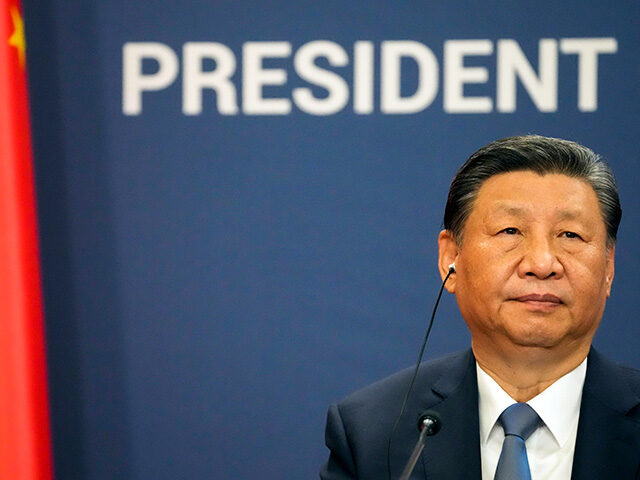Chinese Communist dictator Xi Jinping admitted at a Politburo session on Monday that China’s job market is in “chaos.”
He ordered his underlings to create “full, high-quality employment” by developing “new sources of job growth,” although he offered few hints on how they might go about their monumental task.
Xi’s remarks after a Politburo “study session” in Beijing were unusually candid about the turbulent state of the Chinese economy. Until now, the Communist regime has steadfastly insisted that a roaring recovery from the Wuhan coronavirus pandemic was underway and critics were spreading seditious propaganda on behalf of hostile Western powers. Chinese state media claimed only a month ago that the job market had become “stable” under wise policy measures.
In March, the state-run Global Times claimed China’s job market was surging with “high demand for artificial intelligence (AI)” workers, but Xi specifically mentioned on Monday that AI jobs were not appearing as quickly has hoped because the industry is taking longer than anticipated to mature.
Xi himself has previously stated that “steady, step-by-step progress” was being made and his subjects only needed to show a little “patience.” Meanwhile, youth unemployment grew so dire that the Communist Party stopped issuing unemployment reports.
The dictator sounded a bit less optimistic on Monday, when his address to the Politburo came after a dour lecture on the job market by Mo Rong, director of a government think tank called the Chinese Academy of Labor and Social Security.
“We must develop new business entities and new business models vigorously, actively cultivating new professions and developing new sources of job growth,” Xi declared.
“The course of high-quality development should be a process that spawns more, better jobs, and that development should better drive employment,” he said. “We must effectively deal with employment discrimination, defaults of wages and social security contribution, illegal lay-offs and other chaos.”
Xi said the public should be taught to hold “correct views of employment,” by which he seemingly meant that Chinese businessmen should focus more on creating jobs than pursuing profit.
“We need to conduct an in-depth analysis on why there are labor gaps in some industries. We can start from solving the problem of a ‘lack of workers in some positions’, and then move on to the issue of ‘some people have no work,’” he advised.
Xi’s comments were filled with so many vague platitudes that it was hard to see them as anything but public-relations spin, probably directed at China’s young people. A record-breaking 11.79 million university graduates will enter the job market this summer and they will not be pleased to find a shortage of good-paying, high-skilled jobs.
China’s youth unemployment rate officially stands at 14.7 percent, although the Communist government has a history of fudging numbers and failing to release raw data, so the real number might be considerably higher. Job creation has reportedly picked up over the past quarter, but not by much compared to the immense wave of freshly-minted university graduates coming over the summer.
The People’s Bank of China (PBOC), the national central bank, published a survey in early May that found almost half of urban residents described the job market as “uncertain.” The people who do have jobs are trying to minimize debt and build up their savings accounts, which means the economy is not seeing the surge of consumer spending needed to kickstart job creation.
PBOC’s survey also found 42 percent of respondents thought the economy was “cooling off” rather than ramping up. 70 percent reported their income was stagnant. Only a quarter of the respondents said they planned to “spend more” over the coming months.
Young Chinese job-seekers report feeling disillusioned and frustrated as they submit dozens of applications without a nibble. They are keenly aware of the difference between their own travails and how their parents and grandparents easily found good jobs in the fast-growing economy of yesteryear.
A growing number of young people have all but abandoned the job market, instead becoming “full-time children” who live with their parents and get paid to help them with simple chores.

COMMENTS
Please let us know if you're having issues with commenting.